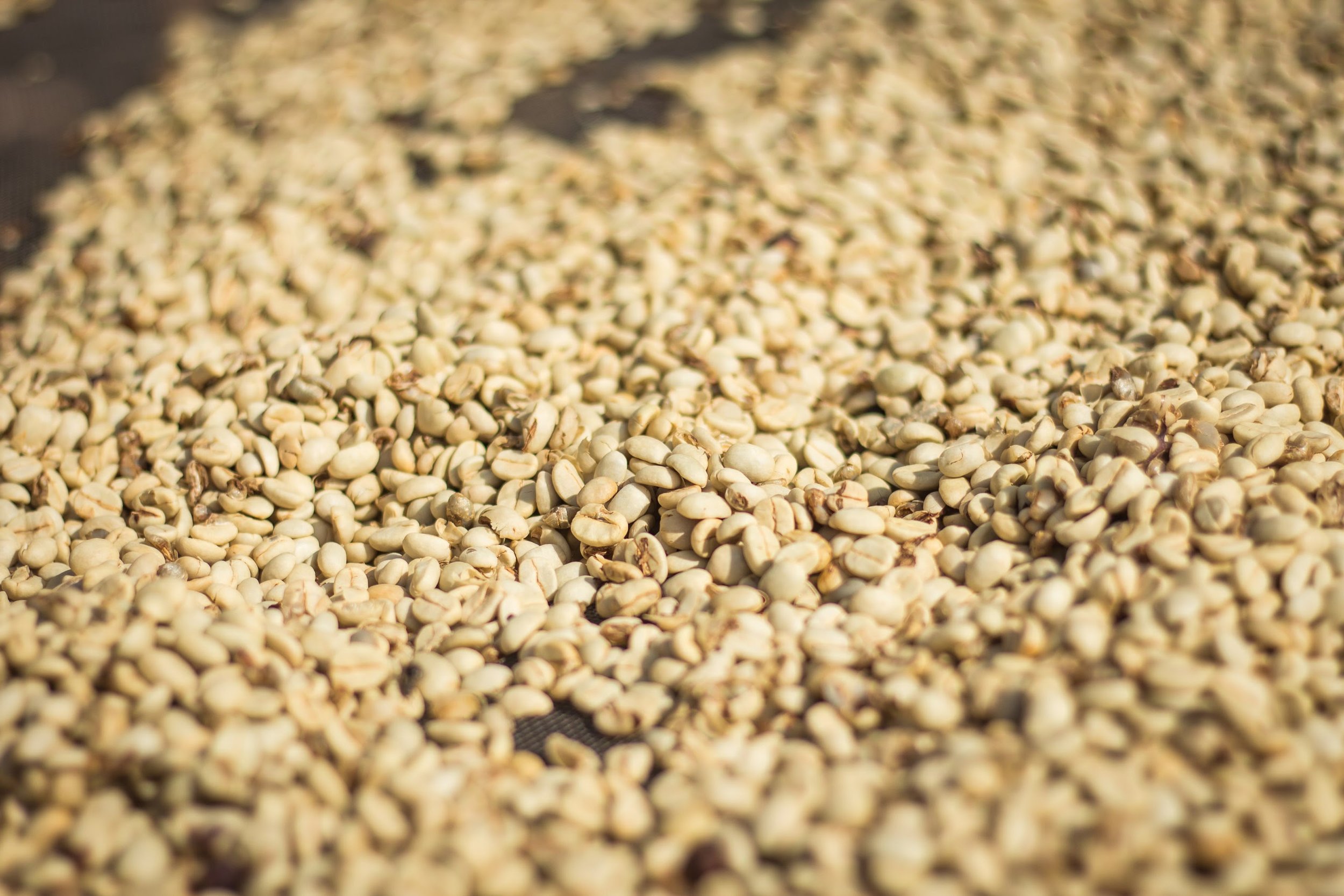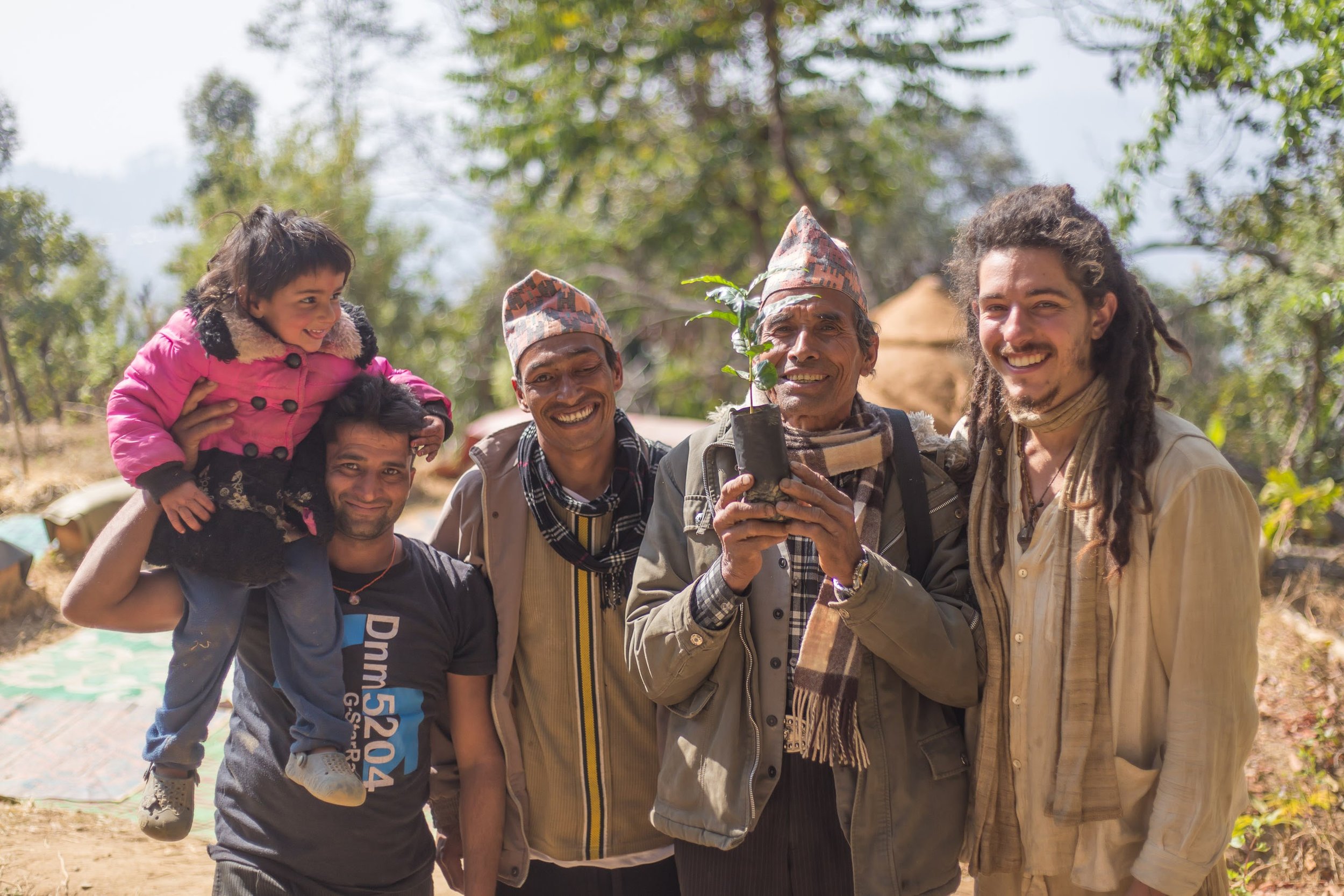Shyam Katuwal owns and operates an organic coffee nursery in Takure. Over the last year, he has shared his experiences with Conscious Impact so that we can help connect potential coffee farmers from Takure and Bimire with a local cooperative. He is truly an inspiration.
Q: Why did you start growing organic coffee?
A: I have found inspiration from within myself grow coffee. For me, coffee farming is more important than life itself. I started growing coffee in the year 2043 B.S. (1986).
Growing coffee is important for the bright future of children. It is good for our health to drink coffee. For families, it can be become a good source of income. From the very beginning, I have felt that coffee farming is good which is why I decided to do it. Now I am so happy and proud of myself. My sons and I have registered the name of a coffee cooperative under the name Surjya Coffee Cooperative.
After the registration, I now have different NGOs (non-government organizations) connecting with me. If I was only growing corn or millet no one would want to work with me. Because of coffee, Conscious Impact has also come, and I feel so happy for this to happen.
Q: How has the community grown from having coffee?
"The journey of coffee is longer than that of us human beings. "
A: Now I am providing training for farmers on how to dig holes to plant coffee trees. With the help of trainings, coffee farming will be able to expand. But right now, we are unable to supply as much coffee as being demanded by the market.
Coffee farming is so good. It is like farming for dollars. Planting trees are beneficial for our health long-term. Even if we don’t have food to eat, even if we just sit in the garden drinking water, coffee is good for us. Gardens are good for the environment because plants give us oxygen to breathe.
Q: Tell us a little bit about your farm, and what coffee has done for your farm because we like your organic style and sister planting, which has led to the creation of a beautiful farm environment:
A: Rice and millet farming is not sufficient to generate enough income. Our goal is to begin three-story farming: with a large tree creating shade as it grows over a coffee tree, and then a low growing plant below that; such as ginger or turmeric. Though land size never changes, the number of people we have to feed only continues to grow. By farming in this way we have enough food to feed everyone, and future generations will have a good source of income. Millet and rice is not sufficient, so this is the best way of generating income and feeding people.
"Rice and millet farming is not sufficient to generate enough income... Though land size never changes, the number of people we have to feed only continues to grow. By farming in this way we have enough food to feed everyone, and future generations will have a good source of income."
Until now I haven’t received any donations. I have been coffee farming by myself. I am so happy that you are all coming here and doing this interview with me, helping to promote my hard work. Coffee is life. We have to go out and cover these naked hills with coffee plants. Since you have coffee saplings, you must plant everywhere, to make everything green again. Whatever help you need, I will be here to support you. Whether it is with trainings or helping speak to people.
There are so many important things that we still have to learn about coffee farming.
"Coffee is life. We have to go out and cover these naked hills with coffee plants."
We have already been certified internationally as organic coffee farmers. We collected soil for 3 years and tested it for being organic or not and for use of pesticides. After going through all those requirements, we were finally certified as organic. We have the certificate, and will eat organic vegetables. We are not like broiler chickens, we will make our whole lives organic and healthy.
We are spreading the message of organic farming in our villages. Some people understand and some people don’t. People do not think for themselves, and so they don’t understand the importance of organic farming and why it is good for everyone and the environment. I am working so hard to convince people that we are capable of doing good, instead of bad.
"We are spreading the message of organic farming in our villages. Some people understand and some people don’t."
I started a coffee nursery in the year 2043 B.S. (1986). Now I am providing coffee trees to my friends and selling them for 15 rupees each. Since 2063 B.S. (2006), I have continually worked in the nursery and spread knowledge to my friends on how to grow coffee.
I’m so happy that you came here to see all of my work from the very beginning. I feel so lucky. By unveiling my work, I am able to connect and share my story with different foreigners, donors, or organizations. This has created a good environment and strong network for me. After connecting with you [Conscious Impact], I feel I like my knowledge has increased from what it was before.
Q: How has starting his own coffee cooperative changed the way he is farming coffee?
A: From the very start at the beginning, we had so much difficulty selling the coffee because there was no cooperative. We first supplied coffee to Buddha Coffee Mill. I started I realized it was necessary to find constant and stable suppliers who would buy coffee. Constantly having to go to different places and people was not sustainable. After that we made 8 primary coffee cooperative groups.
Now we are established and are able to supply all our coffee to this processing center in Sukute. They collect all the coffee there, divide the organic from the inorganic, and all the organic coffee is shipped to Korea and elsewhere. In this way, we directly transport our coffee to Sukute as we grow it.
By connecting to this district coffee cooperative, we can create unity among us which can be hard and difficult to do. If we support each other, we can raise each other up. Some people still do not understand why I plant coffee trees. If we cover all these hills with coffee plants, we can look at it and know it is for the benefit of the Nepalese people. It is not for foreigners. Our aim is to raise awareness among people and help them to do something by themselves. Coffee is so important.
"One person cannot do anything on their own. If we help each other, we are able to raise each other up."
One person cannot do anything on their own. If we help each other, we are able to raise each other up. If Conscious Impact is here to help, then we are more than willing to receive it. Whether it is with our coffee or with a nursery, we are here to receive and share knowledge. We as farmers are a marginalized group. I am trying by myself to do this work, but with more energy from others, we’ll be inspired to do more.
For us, coffee is our life cycle. The journey of coffee is longer than that of us human beings. People are not able to understand coffee. Our coffee is organic Arabica, and comes all the way from the Americas. The name Arabica is famous in this way.
I want to thank you again; I am able to sit here and give this interview and not worry about time. There is no value of time because the life cycle is constantly going on.
















